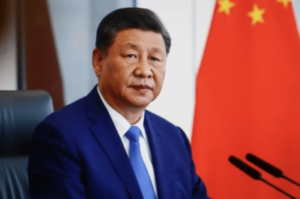$AAPL $BABA $NVDA
#Apple #Alibaba #AI #iPhone #China #Tech #Stocks #Investing #ArtificialIntelligence #MarketNews #Business #Innovation
Alibaba Group chairman Joe Tsai has confirmed that the company is partnering with Apple to integrate Alibaba’s artificial intelligence capabilities into iPhones sold in China. This strategic collaboration signifies Apple’s attempt to maintain a competitive edge in the highly regulated and increasingly AI-driven Chinese market. With China enforcing strict rules on AI models, Apple’s partnership with Alibaba helps the iPhone maker navigate these regulatory challenges while ensuring that devices sold in the country can offer AI-powered features that align with local policies. By leveraging Alibaba’s AI, Apple can sidestep geopolitical and compliance risks while tapping into the Chinese tech giant’s extensive cloud and machine learning infrastructure.
The move comes as Apple continues to face growing competition from local rivals such as Huawei, whose latest smartphones have been gaining traction in China. By integrating Alibaba’s AI, Apple aims to bolster the user experience for Chinese consumers and potentially boost iPhone sales in a market where domestic brands dominate. Alibaba’s advanced AI capabilities—fueled by its cloud computing division, Alibaba Cloud—offer Apple a localized, regulatory-compliant solution to enhance features such as Siri, intelligent notifications, and other machine-learning-driven applications. This could help Apple retain loyalty among Chinese consumers, particularly as AI becomes an essential aspect of smartphone differentiation.
From a financial perspective, this partnership is likely to have implications for both Apple and Alibaba stocks. Investors will be watching closely for any potential revenue growth stemming from increased iPhone sales in China. Apple’s reliance on Alibaba’s AI highlights the tech giant’s willingness to collaborate with Chinese firms as a strategic necessity rather than trying to develop its own AI solutions in an environment where foreign AI models face heavy scrutiny. Meanwhile, for Alibaba, this partnership could bolster its AI and cloud computing business, reinforcing the company’s position as a dominant player in China’s technology ecosystem. A strengthened AI division could drive future revenue growth, making Alibaba a more attractive investment in the long run.
The broader market impact suggests that semiconductor companies like Nvidia, which provide the underlying hardware for AI services, could also benefit indirectly from the growing adoption of AI within the smartphone ecosystem. As AI-driven features become a key selling point, companies investing heavily in AI infrastructure, including cloud providers and chipmakers, could experience positive momentum. However, geopolitical tensions between the U.S. and China remain a potential risk, as increasing regulatory scrutiny on foreign tech firms operating in China could still pose challenges. Yet, for now, Apple’s strategic alignment with Alibaba appears to be a calculated move to secure its foothold in one of its most important markets.










Comments are closed.